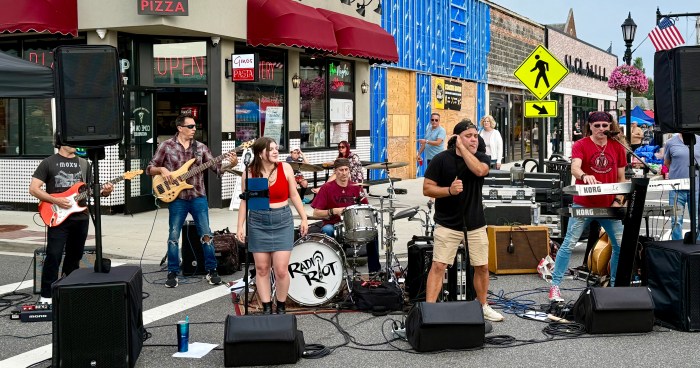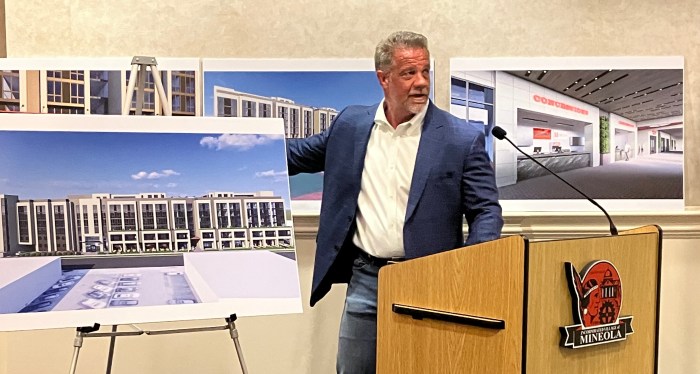
For author/lawyer/activist Nelson Denis, whose recent book War Against All Puerto Ricans chronologically traces the abusive historical relationship the United States has had towards Puerto Rico, the sins of the past have laid the groundwork for the troubling issues of the present. For Denis, there are three modern-day situations in place that will continue to derail any of this American commonwealth’s hopes of emerging from its current, economic downward spiral.
 Fiscal Austerity
Fiscal Austerity
“Wall Street told one governor after another that they needed to inflict specific types of fiscal austerity, one after another—raise taxes, eliminate health benefits for pensioned teachers, pension rollbacks across the board, lay off 22,000 government works, raise property, small business and gasoline taxes—all of this was done. Wall Street said if they did that, Puerto Rico’s bond rating would not be changed. Puerto Rico, in good faith, inflicted all that fiscal austerity on the average Puerto Rican. The result is that Puerto Ricans have left the island in record numbers over the last 10 years. Point one is that the government did that. Then, Moody’s and Dun and Bradstreet downgraded the Puerto Rican debt down to junk bond status anyway, thereby creating a higher premium and higher interest rates that is going to invoke a new set of austerity measures driving Puerto Rico to the brink of bankruptcy.”

Act 22
“At the same time that Puerto Rico is being pushed to service that debt. Act 22 gives a 20-year abatement on all interests, dividends and capital gains income to high net worth North American investors that go down to Puerto Rico and invest in whatever they want. One leading example is that John Paulson, who has a hedge fund which made $15 billion in profits in 2007 during the mortgage crisis betting against the American economy and profiting from small owners losing their homes—they were betting on precisely that happening. When those people lost their homes, [Paulson’s people] would buy those distressed properties for pennies on the dollar and make money for the hedge funds. He made $15 billion in profits. He is now the leading investor from the United States in Puerto Rico. He’s building a $500 million luxury hotel complex and condominium complex in Gerardo Beach and he’s got other developments in the works under the rubric of a 20-year tax deal. So he gets this corporate welfare but the Puerto Ricans are the ones perceived to be freeloaders. And the fact that they’re leaving the island that is their birthplace where they were born and have family and friends—the fact that they have to leave—shows they’re voting with their feet.”

in on U.S. flagships that literally must have
been constructed in the United States with
U.S. materials.
The Jones Act
“The Jones Act of 1920 under Section 27 stipulated that other than foreign-registered vehicles, any product that comes into Puerto Rico has to be on a U.S. ship. A U.S. ship means that it has to have been registered as a U.S. flagship and to have literally been constructed in the United States with U.S. materials. It has to be owned and operated by U.S. citizens and sailors. From soup to nuts, the whole company and ship must be American. Puerto Rico is an island. It’s surrounded by an ocean. It doesn’t make its own cars or much of anything else. Everything has to be imported. Almost everything that’s consumed in Puerto Rico has to come in on these ships. But, under the Jones Act, they all have to be taken off the foreign ships and put on American ships. So, automobiles from Japan, finished goods from Europe, food from South America, medicine from Canada—add it up—anything that comes in, has to undergo this process that’s the equivalent of digging a ditch and filling it again. It happens in Jacksonville, FL. The only ones that benefit are the 50,000 or so people involved. The owners of the shipyards and ships lobby the Republican Party. Labor is those 50,000 jobs in Jacksonville. The unions lobby the Democratic Party. So you have highly concentrated areas of resistance to any Jones Act reform in Puerto Rico. And these people will spend the money because this represents $700 million to $1 billion of revenue per year in Puerto Rico. The fact that this has been in place and there’s never been any meaningful discussion of reform [isn’t surprising].”
Nelson Denis will be speaking at the Ethical Humanist Society of Long Island (EHSLI) on Oct.11. EHSLI is located at 38 Old Country Rd. in Garden City. For details, call 516-741-7304 or visit www.nelsondenis.wordpress.com/home/.






























